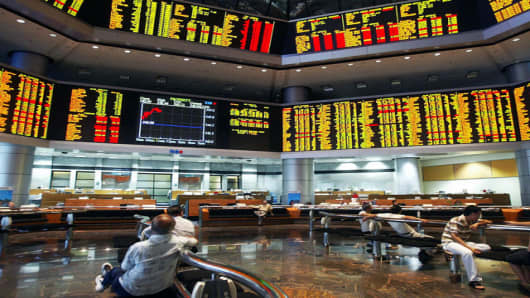Asian markets ended mixed Wednesday, with Japan closing 1.6 percent higher, boosted by a recovery in financials and a stronger U.S. dollar. But Hong Kong and China stayed in the red, weighed down by Chinese telcos.
The dollar surged on Tuesday after Federal Reserve Chairman Ben Bernanke warned the weak U.S. currency posed a risk to inflation, sparking speculation the central bank could raise interest rates later this year.
A retreat in oil prices pressured energy plays such as Japan's Inpex Holdings and South Korea's SK Energy, but lifted the region's major airlines, with Qantas ending 4.7 percent higher.
Tokyo's Nikkei 225 Average rose 1.6 percent, powered by Honda Motor on its strong U.S. sales and by Fast Retailing, which shot to its greatest one-day gain in more than four years. Sony and other exporters gained on a slightly stronger dollar, while steady oil prices gave the market a bit of room to rise.


